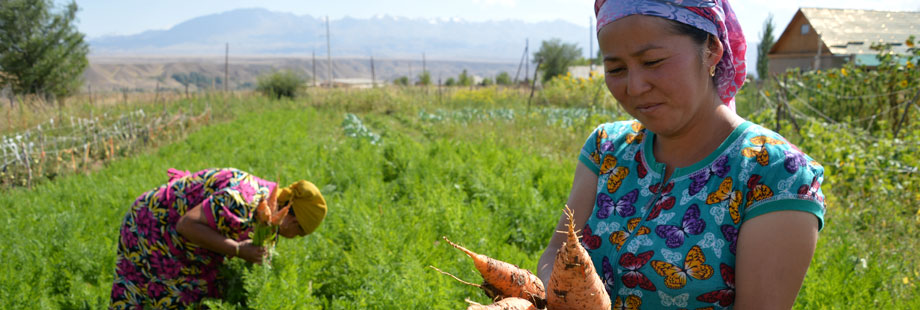Innovation for Sustainable Crop Production
If global population and food consumption trends continue, by 2050 the world will need 60 percent more food than is available today. Because arable land is limited, most of this additional production will have to come from sustainable agricultural intensification.
Policies that promote doing more with less.
Sustainable intensification looks at whole landscapes, territories and ecosystems to optimize resource utilization and management. Farmers must produce more from the same area of land and use fewer inputs while producing greater yields. Such a transition is both possible and necessary.
FAO provides policy assistance to increase productivity, protect crops sustainably, limit chemical contamination, manage biodiversity and ecosystem services, and strengthen livelihoods.
FAO’s Save and Grow presents a new paradigm that enhances both productivity and sustainability.
The Organization advocates for incentives that reward improved practices, convenes international and regional forums and encourages policies that promote agro-ecological innovation.
Key policy messages
· FAO works to mainstream resource use efficiency into national policies for enhanced productivity, food and nutrition security.
· FAO’s Save and Grow paradigm calls for “greening of the Green Revolution” through an ecosystem approach that draws on nature’s contribution to crop growth.
· Efficiency gains can be achieved through policies that promote smart resource linkages and enhanced nutrient flows in integrated farming systems such as rice-fish and other crop-livestock systems; better quality feeds and balanced animal diets; improved energy use throughout the value chain; and use of information and communication technologies to accelerate the diffusion and adoption of innovations.
· Resource use efficiency policies are particularly important for the world’s 500 million family farmers in developing countries because they promote more remunerative farming systems, but they are also of global importance where the challenge is to cope with resource scarcity and environmental impact.
Featured resources

Briefs
COVID-19 and the role of local food production in building more resilient local food systems









Issue paper
The Water-Energy-Food Nexus. A New Approach in Support of Food Security and Sustainable Agriculture

